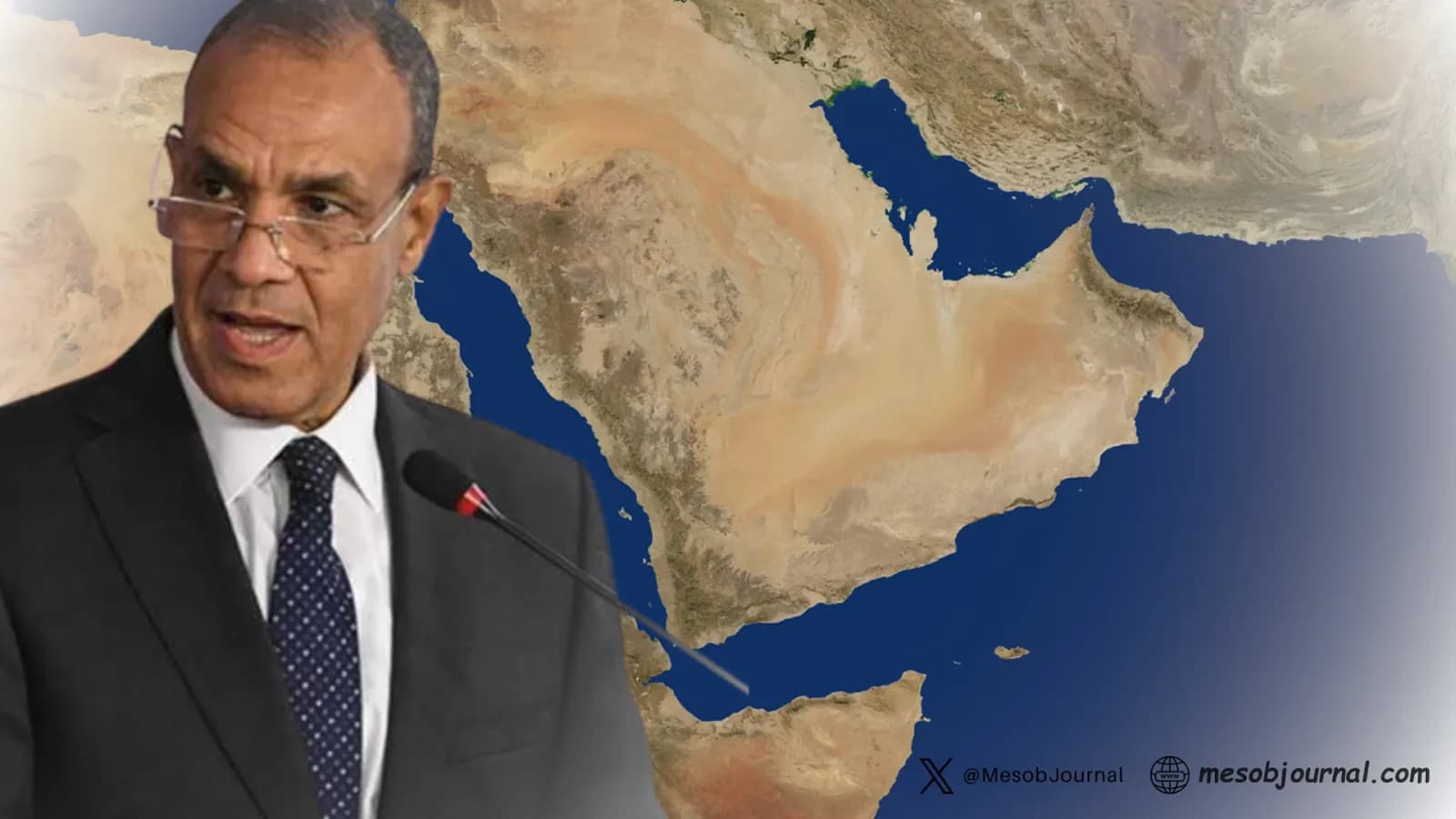Egypt: “Ethiopia Will Remain Land-Locked Until Judgment Day”

In a sharply worded interview with Saudi Arabian state-owned media Al Arabiya, Egypt’s Foreign Minister Badr Abdelatty proclaimed that the governance of the Red Sea is strictly the business of coastal states, and excluded the land-locked Ethiopia from any participation: “Geography is a divine decree no human can alter, and Ethiopia will remain a land-locked nation until Judgment Day, with no role whatsoever in the Red Sea.”
Abdelatty said that Egypt, together with Saudi Arabia, bears the “primary responsibility for administering this vital maritime corridor and ensuring its security and stability.”
He added that Egypt and Saudi Arabia are already in discussions on a new governance framework for the Red Sea.
Why Egypt is drawing the line
Egypt argues that the Red Sea — one of the world’s most important chokepoints for maritime trade and energy transport — must be governed by the states that physically border it, not by inland powers. According to Abdelatty:
- Only littoral (coastal) states have the legal, strategic and moral claim to Red Sea governance.
- Ethiopia, lacking a coastline, cannot legitimately participate in that governance.
- Egypt has emphasised that it is discussing the issue with Saudi Arabia, identifying both as key littoral states with a leading role.
Egypt’s stance is also shaped by its long-standing rivalry with Ethiopia over the Grand Ethiopian Renaissance Dam (GERD) on the Nile. The dam dispute, which dates back to 2011, has deeply strained relations between Egypt, Sudan and Ethiopia.
By linking Red Sea governance to littoral rights, Egypt is signalling that it will oppose any strategic moves by Ethiopia to gain a sea-access narrative or influence beyond its land-locked geography.
Eritrea’s indispensable role in the Red Sea
As Egypt asserts primacy in Red Sea governance, the position of Eritrea merits closer attention. Eritrea is one of the eight states lining the Red Sea (the others: Saudi Arabia, Yemen, Egypt, Sudan, Djibouti, Jordan and Palestine).
Eritrea has, for decades, maintained a coastal presence — a 1 950 km plus shoreline along the Red Sea and Gulf of Aden — and has consistently asserted maritime sovereignty. A recent piece in Mesob Journal argues Eritrea “defended [the Red Sea] when no one else would.”
Key points regarding Eritrea’s contribution:
- Eritrea’s self-reliance and coastal defense record give it credibility as a maritime-stability actor in a region rife with strategic competition.
- Its status as a littoral state means it legitimately shares in the discourse on Red Sea governance — precisely the kind of role Egypt says land-locked countries like Ethiopia must not have.
- Eritrea’s consistent principle: littoral sovereignty, minimal external interference, and regional cooperation in maritime security.
Thus, Egypt’s rhetorical line indeed strengthens the broader case for Eritrea’s role in Red Sea security — not as an afterthought, but as a foundational littoral state with direct interest and legitimate claim.
Strategic implications & what to watch
- Ethiopia’s ambitions: Ethiopia has pursued alternative routes to the sea — notably through illegal talks with the self-declared Somaliland about port and naval arrangements. Egypt and Eritrea will view this as a contestation of the littoral-state principle.
- Red Sea governance framework: With Egypt and Saudi Arabia taking the lead, we may see a new regional agreement or alliance structure for littoral states, potentially excluding non-coastal actors entirely.
- Eritrea’s positioning: Eritrea can capitalise on the discourse to cement its strategic role in maritime security, possibly playing a guarantor role in future Red Sea frameworks.
Littoral-state rights
Egypt’s assertive declaration that Ethiopia “will remain a land-locked nation until Judgment Day” is less an isolated barb than a strategic positioning of littoral-state rights in the Red Sea. In that debate, Eritrea’s role is both legitimate and essential.
The governance of the Red Sea is no abstract concept — it is about sovereignty, strategic control, trade lifelines, and regional stability. When the maritime corridor becomes a theater of navigational, economic and security competition, only the states on its shores should fully decide its shape.
Eritrea, standing on that shore, has earned a voice — and now the world should listen.
Related stories

Biniam Girmay ends drought with Valenciana opener win for NSN
Eritrea’s Biniam Girmay opened his 2026 season the way a nation likes to see it: arms up, sprint line won, and the long wait finally over. Girmay powered to victory on Stage 1 of the Volta a la Comunitat Valenciana , delivering an immediate payoff on his debut with NSN Cycling

Eritrea Draws a Legal Red Line on Ethiopia’s “Sea Access” Drumbeat
On Thursday Jan. 30 2026, Eritrea's Information Minister Yemane G. Meskel cut through weeks of Addis Ababa’s noisy “sovereign sea access” messaging with a blunt reminder: access to ports is commerce and transit — not entitlement, not “historical destiny,” and not a blank cheque f

Isaias Afwerki on Abiy Ahmed: War Rhetoric, Optics, and a Hollow State
When President Isaias Afwerki was asked about Ethiopia’s “Two Waters” rhetoric and escalating war language on January 12, 2026, his response was unusually curt. The question, he said, should not even have been asked. That dismissal wasn’t evasion. It was diagnosis. Afwerki redu

Abiy Ahmed’s Strategic Isolation Is Now in Writing
What Addis Ababa has spent two years denying is now staring it in the face—on White House letterhead. The January 16 letter from Donald Trump to Abdel Fattah el-Sisi isn’t just about mediation. It’s a signal. Clear, deliberate, and consequential. Washington is aligning itself

